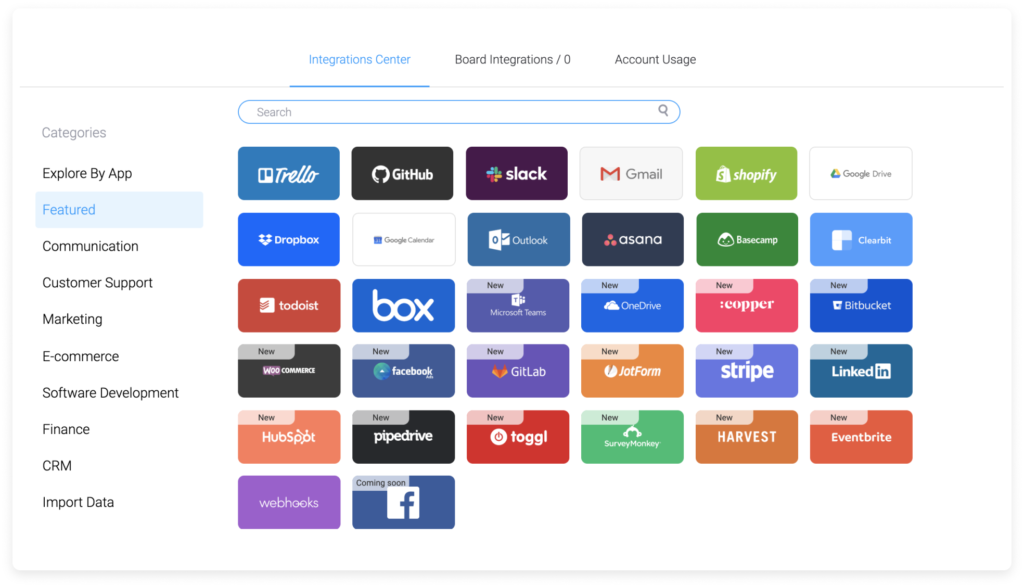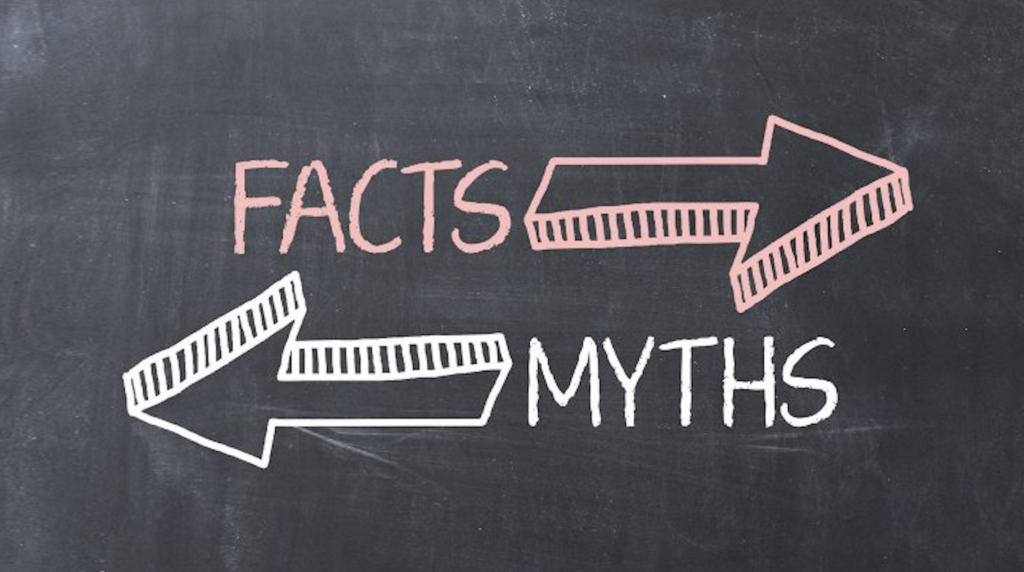
5+ Best CRM Software (If you want quick results!)
If you want to know about the best CRM Software for quick, noticeable results to your business, then click here to see some of the best about
What is a CRM? This question often pops up in discussions revolving around customer service, the sales cycle, and marketing. Customer Relationship Management system (CRM) has evolved significantly since its inception in the 1970s, becoming an indispensable tool for businesses of all sizes.
From tracking leads direct marketing campaigns and sales reps, to automating processes and supporting back-office operations, a well-organised CRM system plays a pivotal role. But what are the different types of CRMs? How can they enhance our understanding of the customer journey and interactions?
In this post, we will explore the various types of CRMs and how they can improve customer interaction understanding. We’ll discuss common misconceptions about assessing satisfaction with a business using CRM data and explore strategies for implementing an efficient vendor administration process. So if you’ve ever asked yourself “what is a CRM?”, stay tuned as we unravel this complex yet essential aspect of modern business management.
Don’t let the fancy term Customer Relationship Management (CRM) scare you. It’s just a tool that businesses use to manage and analyse customer interactions. The goal is to improve business relationships, enhance customer service, and drive sales growth by collecting data about clients.
Back in the 1970s, CRMs were simple systems used for maintaining contact information. Today, modern CRMs have evolved into sophisticated platforms that integrate with other software tools like email marketing services or accounting software. They offer advanced features like automation capabilities, predictive analytics, and more. (source)
A good CRM system keeps tabs on potential customers who may be interested in your products or services. This feature allows businesses to nurture these sales leads, through personalised communications until they’re ready to make a purchase. (source)
But CRMs do more than just manage contacts and track leads. They provide insights into customer behaviour patterns, which businesses can use to tailor their offerings according to what their customers want or need. This leads to increased satisfaction levels among existing customers while attracting new ones at the same time.
CRM systems can be a great asset to businesses, furnishing them with valuable data regarding their patrons and aiding in the enhancement of general business proficiency.

Customer Relationship Management (CRM) systems come in various shapes and sizes, each designed to serve specific business needs. Comprehending the various kinds can assist you in selecting the correct one for your enterprise.
The first type is Operational CRM. This system focuses on automating processes like marketing, sales, and service automation.
It’s all about streamlining daily operations to enhance efficiency and productivity while reducing costs. Operational CRM helps small businesses, as well as large ones manage customer interactions across multiple channels seamlessly, promoting customer retention.
Analytical CRM supports back-office operations by analysing customer data collected from various touch-points. It uses this information to provide insights into customer behaviour patterns that can be used to make informed decisions regarding marketing strategies or product development.
The third category includes Strategic and Collaborative CRMs, which focus on enhancing understanding about customers’ preferences. The strategic aspect involves the customer service teams leveraging data analytics tools to further customer interests and generate insights that aid decision-making processes at higher management levels.
Collaborative CRM aims to improve communication among sales and marketing teams and various departments within an organisation so they can share valuable information concerning customers, ensuring consistency in lead management and interaction with clients across all points of contact.
Choosing a suitable type depends largely on your business requirements – whether it’s managing day-to-day tasks more efficiently or gaining deeper insights into consumer behaviour patterns; there’s a solution out there tailored just for you.

Customer Relationship Management (CRM) software has become an essential tool for businesses of all sizes. It helps manage customer interactions, sales, and marketing campaigns effectively. There are many different types of CRM systems to choose from; here are a few popular options:
HubSpot is one of the most popular CRM tools on the market today. Its user-friendly interface makes it easy for small businesses to get started with their CRM efforts without much technical expertise.
Salesforce is another widely used CRM system that caters to both small businesses and large enterprises alike. It provides users with a comprehensive set of tools designed to help them streamline their sales processes while also providing valuable insights into customer behaviour patterns.
Pipedrive is known for its intuitive pipeline management capabilities that help sales teams to stay organised throughout the entire sales process from prospecting through closing deals efficiently.
Monday.com is an all-in-one CRM tool designed for teams looking to streamline workflows and manage projects more efficiently. It provides a customisable dashboard with drag-and-drop functionality allowing businesses of any size or industry type the ability to create unique workflow solutions tailored specifically towards their needs.

Customer customer Relationship Management software (CRM) is an essential tool for businesses to manage their customer interactions, sales, marketing efforts, campaigns, and customer data. However, like any other software or tool in the market, CRMs come with their own set of advantages and disadvantages.
Better Customer Retention: A CRM system helps businesses improve customer satisfaction by providing better customer service. It allows companies to track customers’ needs more efficiently and respond quickly to issues that arise.
Increased Efficiency: By automating many manual tasks such as data entry and follow-up emails after a sale has been made, CRMs save time for sales representatives which can be used on more important tasks. Marketing automation such as marketing campaigns can be a huge time-saving move in any business.
Better Data Organisation: With all your customer information stored in one place, it’s easier to keep track of everything from contact details to purchase history. This makes it easier for teams across departments (sales team & marketing team) to collaborate effectively.
Data Analysis: Analytical CRM enables you to analyze valuable insights about your customers based on historical data gathered over time through different channels.
Potential Complexity: A major disadvantage of using a CRM system is its complexity which requires proper training before use. Without adequate knowledge on how the system works, there may be difficulties encountered while navigating through its features properly leading up errors.
Limited Customisation: Some CRM systems may not be fully customizable, which means businesses might have to adapt their processes to the system rather than vice versa. This can lead to inefficiencies and additional costs if customizations are required.
Data Security Risks: Storing sensitive customer data on a CRM system makes it vulnerable to cyber attacks. Hence, proper security measures must be put in place by the business owners or IT team responsible for its maintenance.

A Customer Relationship Management (CRM) system is an essential tool for businesses that want to manage customer interactions effectively. A CRM system can help you store and analyse customer data, automate marketing campaigns, track sales performance, and improve customer service.
One of the most significant advantages of using a cloud-based CRM system is that it provides access to your business’s critical information from anywhere with an internet connection. This feature allows employees who work remotely or travel frequently to stay connected with customers and colleagues in real-time.
Scalability: With cloud-based CRMs, you only pay for what you need. You can start small and add more features as your business grows without having to invest in expensive hardware or software upgrades.
Cost-effective: Since there are no upfront costs associated with purchasing hardware or software licenses, cloud-based CRMs are cost-effective solutions for small businesses looking to implement a powerful CRM solution on a budget.
Ease-of-use: Most cloud-based CRMs offer intuitive interfaces designed for non-technical users. This means that anyone on your team can quickly learn how to use the platform without requiring extensive training sessions.

A well-organised CRM system isn’t just a fancy tool for big corporations. It’s a crucial foundation for businesses of all sizes, especially small enterprises. A properly structured CRM system can provide relevant content to leads based on predictive analysis, increasing the chances of converting them into loyal customers and ensuring long-term relationship maintenance.
The effectiveness of your CRM strategy depends largely on how you measure its impact. Incorporating performance indicators like customer satisfaction scores or Net Promoter Score (NPS) helps you track the success rate accurately. Regularly assessing these metrics gives insights into what’s working and what needs improvement in your approach towards customer service.
Data quality plays a crucial role in any CRM strategy. Outdated or inaccurate data can lead to suboptimal choices and potential missed opportunities. Maintaining data accuracy and freshness is essential for any successful CRM strategy, as it enables businesses to make informed decisions while streamlining operations.
Besides providing sales managers with valuable insights about potential customers’ behaviour patterns and preferences for geographic marketing campaigns, a well-structured marketing CRM software also allows businesses to automate repetitive tasks such as sending follow-up emails or phone calls and scheduling appointments, saving time for focusing more on strategic planning initiatives.
Investing time and resources into organising your CRM effectively will help streamline operations while enhancing overall business productivity by fostering stronger relationships with clients.

Assessing customer satisfaction is crucial for any successful business. However, many misconceptions surround this process, leading to ineffective strategies and lost revenue. One such misconception is the belief that all CRM tools are created equal.
When selecting a top marketing automation and CRM tool, simplicity should be a top priority. Many businesses make the mistake of assuming that more complex systems will yield better results. However, this isn’t always the case.
A Forbes article on simplicity in tech highlights how overly complicated systems can hinder productivity rather than enhance it. The right tool should align with your specific needs, goals, and industry size without overwhelming users with unnecessary features or complexity.
Needs: Identify what you want to achieve from using a CRM system before deciding which one to use.
Goals: Your long-term objectives should guide your choice of CRM software.
Industry Size: Larger industries may require more robust CRMs while smaller ones could benefit from simpler solutions.
Understanding these key considerations can help avoid costly mistakes when assessing customer satisfaction levels within your business operations. It’s not only about gathering data, but also interpreting it in a way that yields meaningful results and enhances customer connection and faithfulness.

Vendor administration is a critical aspect of any business, and a successful strategy is key to achieving excellence. Building strong personal bonds with people, employees, sales reps and other lead management, marketing teams, and suppliers is essential to managing customer relationships. This approach fosters a positive working environment and facilitates smooth operations.
Efficiency and effectiveness in operation require consideration of the intricacies of your operations, customer lifecycle and the entire sales and marketing process. A CRM system can be a powerful tool for optimising operations and sales processes, with sales force automation enabling predictive analysis to provide tailored content. It helps streamline processes, track leads effectively, and provide relevant content based on predictive analysis.
Maintaining current knowledge of market trends and advances in the sector is essential for staying ahead. Regularly checking industry news sites like TechCrunch or subscribing to newsletters from leading tech blogs such as GadgetGeekHQ can keep you informed about the latest advancements that could impact your business.
Data Collection: CRMs collect data about clients, which can be useful when dealing with vendors.
Predictive Analysis: The ability of a CRM system to analyse collected data allows businesses to predict future trends accurately, enabling them to plan accordingly.
Cross-departmental Collaboration: By sharing information among various departments through a collaborative CRM system, organisations can improve their overall performance by ensuring everyone is on the same page regarding vendor management strategies.
In conclusion, when asking “what is a CRM”, regardless of which one you choose to go for, implementing an efficient vendor administration, customer services and contact management strategy requires careful consideration of several factors, including choosing suitable tools like CRMs, fostering good relationships internally and externally, understanding market trends, using customer service representatives and, more importantly, maintaining focus towards achieving organisational goals and objectives while ensuring customer satisfaction at all times.
While there are some disadvantages of using a CRM tool like complexity and limited customisation, the benefits undoubtedly outweigh them when used correctly. By providing better customer service, more customer knowledge, improving efficiency & productivity with automation features & streamlining operations across departments, CRMs help businesses grow faster in today’s competitive market.
Efficient vendor administration strategies can enhance overall operations using CRMs, and it’s crucial to choose a suitable tool with simplicity when assessing satisfaction with your own business development processes.
Regular assessments can help companies avoid bad data insights and measure responses by incorporating performance indicators into their well-organised CRM data system.
For more information on CRMs, check out these other articles:
Related Post’s

If you want to know about the best CRM Software for quick, noticeable results to your business, then click here to see some of the best about

Do you have a property portfolio & want to see how you can manage it better? Then check this article out for the best software for Landlords

An in-depth review of the Monday.com crm. Is this the crm you should consider for your small (or large) business? You decide.